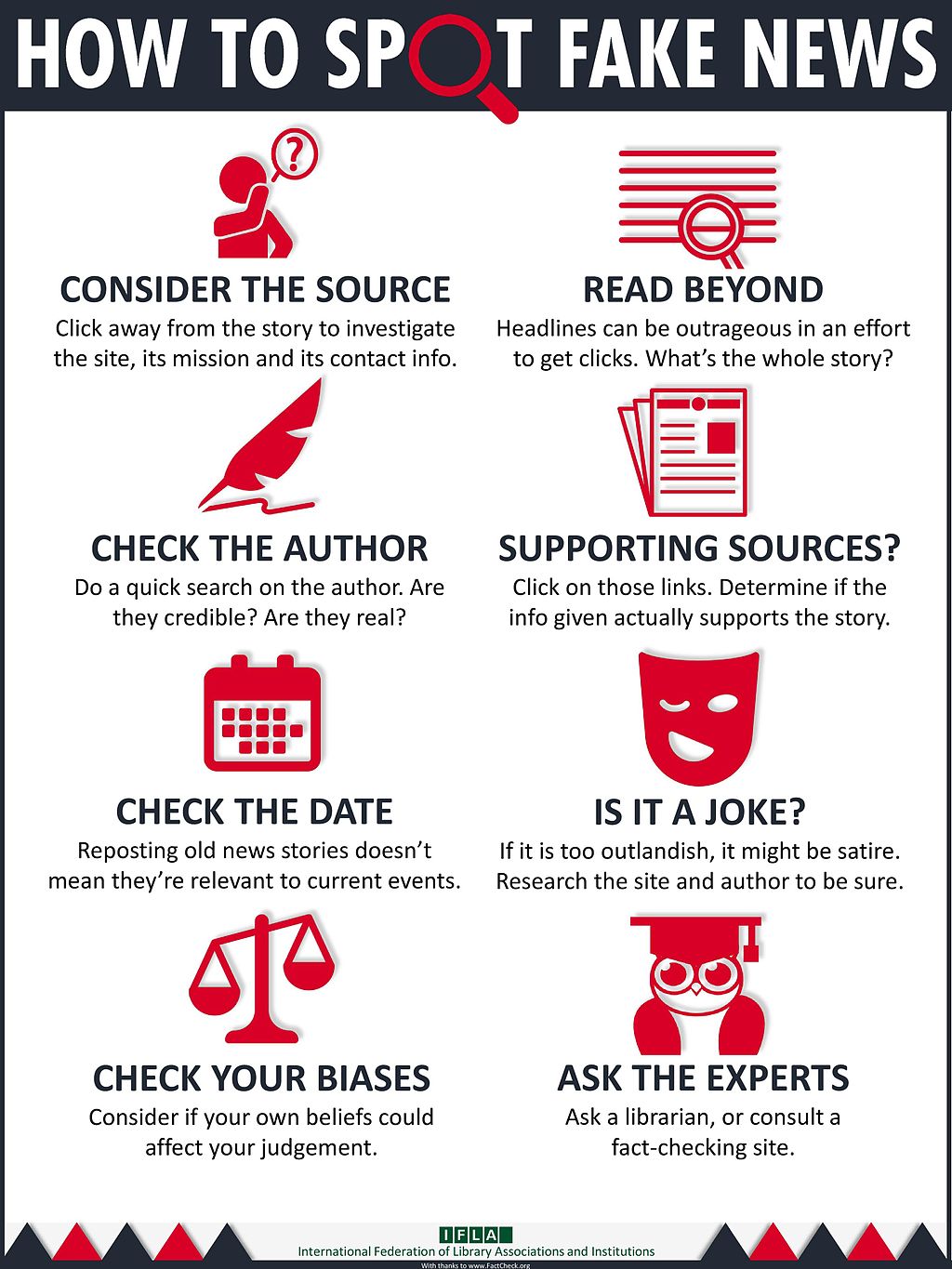Doing Your Research
 |
In most of our daily lives, we are consumers of information. But as the creator of a podcast,you are producing information that other people will consume. Even though you won't necessarily be on the lookout for fake news, the infographic on the left still has some good information about how to conduct thorough and ethical research. After all, if you are reading an article that you think may be fake or writing a podcast to send out into the world, you must do the following:
|
Verifying Information
This episode of Caliphate from the New York Times is a great example of questioning information that seems suspicious and verifying information that a subject has told you. This ties in with Consider the Source, Check the Author, and Is It is Joke? from the "How to Spot Fake News" infographic.
*Please note that this episode contains graphic descriptions of abuse.
6:45 - Subject discusses salary
8:36 - Suspicions that the subject is lying
15:03 and 22:45 - The Narrator checks her sources to verify the information.
This episode of Atlanta Monster presents a number of conspiracy theories about who may have been responsible for the Atlanta child murders besides Wayne Williams, the man who was convicted and is currently serving time. The host does a very good job presenting theories, but does he really provide any evidence or follow up with providing any concrete evidence about the truth or lack thereof?
The podcast description states that the podcast 'Atlanta Monster', tells the true story of one of Atlanta’s darkest secrets, almost 40 years later.
List of Conspiracy Theories - 33:20
Phone Interview - 36:25
Fake News
Some things are just straight-up FAKE, like this picture below (allegedly taken in the aftermath of Hurricane Harvey in Houston):

There are sites and even extensions you can add to your browser to help you determine if a news story is fake or legitimate.
Fact-Checking Sites:
Browser Plug-ins:
- BS Detector (Chrome, Firefox, Safari)
- Fake News Alert (Chrome)
- This is Fake (Chrome, for Facebook feed)
Bias in the Media
Other stories we read in the media are not necessarily fake, but they are biased. Media bias is the bias or perceived bias of journalists and news producers within the mass media in the selection of events and stories that are reported and how they are covered.
Media Bias/Fact Check can help you understand bias, and determine the extent of bias from various news sources.
Here are some examples of bias in the media:
This article by Ann Coulter is a clear example of bias in that she does not present both sides of the argument over Trump's travel ban. She is unabashedly in favor of the travel ban and it outwardly critical of the Democrat's objections.
Other articles, like this one from NBC News, are harder to spot because they are generally well-written, come from a mainstream media source, and appear to provide both sides of an argument.
This article from Reuters presents information in a straight-forward factual way and offers both parties' sides of the Immigration ban.